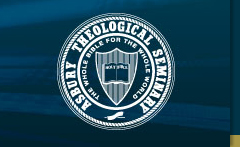Files
Download Full Text (48 KB)
Summary
COURSE DESCRIPTION This course is “An introduction to cultural anthropology, with application to Christian evangelization and mission.” From before the beginning (Genesis 1), our Triune God has been in mission, reaching out in self-giving, other-embracing love (John 1 & I John 1). We now call this the missio Dei, “the mission of God” to remind us that it is not our mission, nor does mission belong to the church. How God does mission is best understood in the sending of Jesus the Christ (Ephesians 2:11-15). As the Father has sent Jesus, so Jesus sends us (John 20:21). It is in the life of Jesus here on earth that we most clearly see our example for mission: Jesus emptied himself, came down to the people, developed relationships and learned the local language and culture for 30 years; and then he began to preach about the Kingdom of God (Matthew 4:17; Luke 4:43) and perform acts of mercy and justice (Luke 4:18-21) that the people saw as signs and wonders of the presence of God among them (Luke 4:22,32,36). The acts of Jesus Christ through the Holy Spirit (the proper title of Acts) continued in the apostles, deacons and those who were called later, like Paul. The apostles began in mission with the Jews (Acts 2-7). The deacons reached out a little further to the half- Jews (Acts 8) and then to the proselytes (Acts 8). Finally, Peter reluctantly reached out to those who were not Jewish, half-Jewish or even wanna-be Jews but were full fledged Gentiles (Acts 10). Still, it was the multi-cultural church at Antioch (not the monocultural church at Jerusalem) that commissioned and sent out the first missionaries: Paul and Barnabas (Acts 13). What they did changed not just the composition of the church but the life of the church. Jesus the Messiah (Christos) became Jesus the Lord (Kyrios) (Acts 28), because that is what the Greeks and Romans were looking for. New understandings of Jesus brought fuller meaning to the cosmic event of the death and resurrection of Jesus. Jesus was interpreted anew as the Logos (John 1), the Pleroma (Colossians 1:19, 2:9-10), the Mystery and Wisdom of God (Ephesians). Every generation deserves a fresh reading of the gospel. Who will speak now to the migrant generation of this globalized world? A critical view of anthropology as it relates to theology will lead us to our main concern, and that is missiology. There will be a conscious effort in our course to maintain a trialogue between anthropology, theology and missiology. Our goal is to gain insights about missiological issues and concerns.
Publication Date
January 2008
Publisher
Asbury Theological Seminary
Keywords
MS, 671, MB, 700, ANTHROPOLOGY, FOR, CHRISTIAN, MISSION, FA08
Language
English

